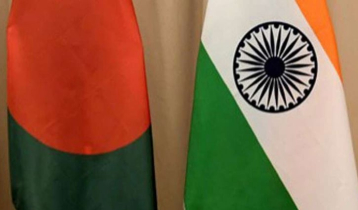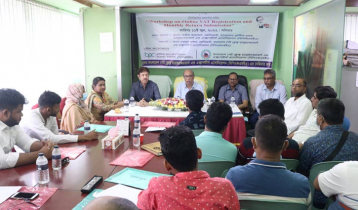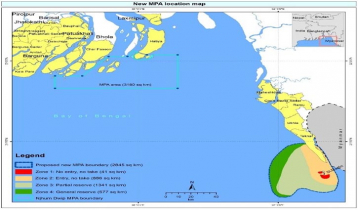The halal food industry: An enormous potentiality in export
Mohammed Shahjalal || risingbd.com
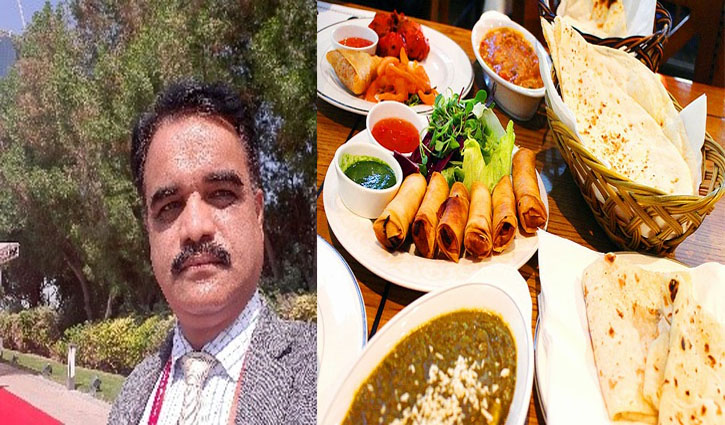
The world is a dwelling place of people of different religions, castes and tribes. Each nation or ethnic community has its own taste, food habit, lifestyle and culture. Halal culture has been developed with halal food, clothing and activities on life among the Muslims who belong to the believers in God. The rituals for food, drink, dress and lifestyle etc are rather different from those of the other religions. Although Halal is the obligation to the Muslims, it is being accepted by other ethnic groups these days. Halal foods are given the utmost importance in Muslim countries in Africa, South Asia, Middle East and Europe. In recent times, marketing with this culture is getting more popular in Bangladesh.
Many may have a clear idea about ‘Halal’. However, it should be pertinent to move in today's presentation by shedding some light on this matter. Halal is an Arabic word which means acceptable or consumable or suitable. In the Holy Quran, this word comes as the opposite of Haram. Halal food is a food that is prepared, processed and marketed in accordance with Islamic laws. In this process halal animals, poultry etc. have to be slaughtered by cutting their jugular vein, carotid artery and trachea properly. Islamic guidance in this regard is that animals should be slaughtered or killed for specific purposes, as painlessly and humanely as possible. The slaughtering must follow the name of Allah by a Muslim. Under no circumstances should animals be slaughtered for fun. Unclean animals and derivative products, including alcohol and insects, are prohibited for consumption in Islam. The Organization of Islamic Cooperation (OIC) introduced Halal requirements through the Standards and Metrology Institute for Islamic Countries (SMIIC). SMIIC helps member states of OIC to expand trade by setting new standards and removing technical barriers to trade.
In 2022, the global halal food market size was $2221.30 billion. The scope of this market has been projected to increase to 4,177.30 billion dollars in 2028 by increasing at a compound growth rate of 11.1%. Brazil, Australia, India, France, China, Sudan and South Sudan, Netherlands, Spain, Somalia and Turkey are the leading exporters of Halal meat to 57 OIC countries. Brazil is the largest exporter of halal meat with a trade value of $5.19 billion, followed by Australia and India with $2.36 and $2.28 billion respectively. Other major exporters include France US$ 0.8 billion, China 0.7 billion, Sudan and South Sudan 0.63 billion, Netherlands 0.59 billion, Spain 0.56 billion, Somalia 0.47 billion and Turkey 0.46 billion. Bangladesh exports to OIC countries were US$ 1725.36, 1646.19, 2128.76, 2563.98 and 2232.27 million during FY 2018-19, 2019-20, 2020-21, 2021-22 and 2022-23 respectively. The world's top 10 exporters export USD 14.04 billion worth of halal meat to OIC countries. In addition, size of the Halal beverage industry in the world is at least 415 billion dollars. Major importers of Halal food and beverages are Saudi Arabia, Indonesia, Turkey, Pakistan, Iran, Iraq, Algeria, Nigeria, Bangladesh, Malaysia, United Arab Emirates and Egypt.
Halal food items include the meat of slaughtered cow or buffalo, goat, sheep and poultry. Fibrous fish, slaughtered animal products, milk and eggs of approved animal species, vegetables, fruits and grains that are not intoxicating, vegetables without intoxicating ingredients and alcohol-free food products are also Halal. Beef and buffalo meat are eaten by more than 63 percent of the world's Muslim population. Among the Christians, this rate is more than 26 percent. People of other religions also enjoy beef in different forms.
Now let's have some information on the foods that are Haram or not allowed for the Muslims. Any food mixed with blood, alcohol, food or drink made with alcohol, pork, dogs, cats, most reptiles, birds of prey, carnivores etc are Haram. Skin care products using dog fat, pig fat, gelatin, collagen, glycerin and allantoin are prohibited. Any material that may harm the consumer is not allowed. Mercury, lead and hydroquinone used in cosmetic procedures are also prohibited.
Consuming Halal food is a command of Allah and an essential part of the Islamic faith. Allah Almighty has repeatedly emphasized on eating halal food in the Holy Quran saying like: “O Messengers, eat pure food and do righteous deeds.’’ The concept of halal is not only the obligation of Shariah, but also includes the concept of sustainability of hygiene, sanitation and safety. Through this, consumers are able to remove their apprehensions about food safety and healthy lifestyle. It is an integral part of Islamic culture and is closely related to the religious beliefs of Muslims. A person who is a Muslim must follow the guidance of Almighty Allah. And that is why Muslims must eat Halal food and eating Haram (forbidden) food is considered a sin.
Top Halal Exporting Countries to OIC-member States (Feb-23)
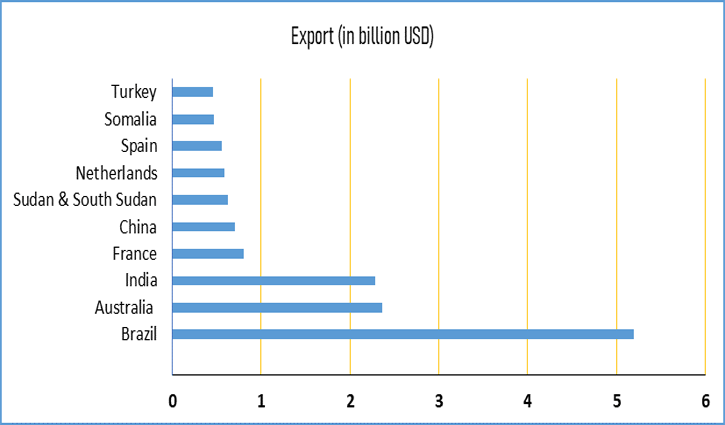 For a food to be considered halal, certain methods of collection, use of clean utensils, and proper processing or cooking and serving of meat must be ensured. Food products complying with the Halal standard may create huge sales opportunities in fast growing markets. To consumers it has gained a recognition and dependability to lead a pious life. There is a $2 trillion global halal food market. Its size is expected to increase further in the future and traders can benefit from this huge market by supplying against the increasing needs of Muslim consumers.
For a food to be considered halal, certain methods of collection, use of clean utensils, and proper processing or cooking and serving of meat must be ensured. Food products complying with the Halal standard may create huge sales opportunities in fast growing markets. To consumers it has gained a recognition and dependability to lead a pious life. There is a $2 trillion global halal food market. Its size is expected to increase further in the future and traders can benefit from this huge market by supplying against the increasing needs of Muslim consumers.
Varieties of food products are available in the global market. Generally, the quality and standard of these products vary from country to country. Halal animals are always vegetarian and grass fed. The meat of herbivorous animals is rich in vitamins, omega-3 fats and antioxidants that are beneficial to the human body. As Halal meat become free from blood, the true taste remains unchanged. Our diet affects our thinking and brain. Halal food does not harm the human brain. This food is free of harmful bacteria and harmful substances for muskies. Halal meat is free from antibiotics, growth hormones and preservatives. All these things can have an adverse effect on the human body and make people sick. Animals slaughtered using non-Halal methods may contain E-coli poisoning, bacteria and other dirty and harmful substances. Halal animal sacrifice does not harm the animal's organs. Labeling or Packaging of Halal meat and foods are to go through the Halal standards. And all these factors ensure food safety for consumers of all religious beliefs.
Right now, the data on Halal and other meat exported from Bangladesh are not represented separately. Subject to the enhancement of export volume this data may be separated for the convenience of all concerned in future.
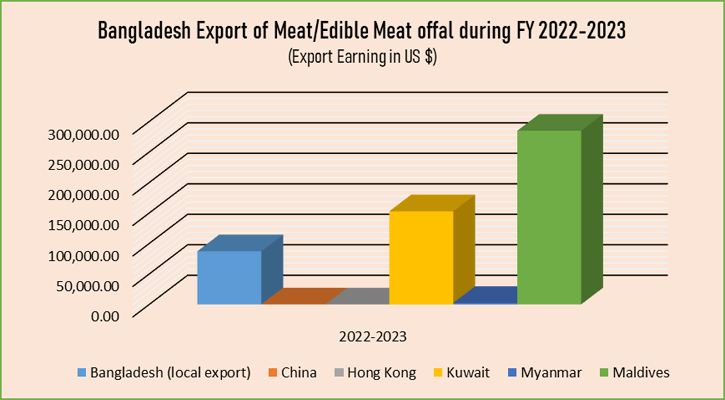
World-renowned chains and hyper companies such as Nestlé, Carrefour, Walmart and Whole Foods, including Brazil's BRF, have been in operation with Halal food business. The interesting thing is that even though the halal food industry dominates in the Muslim market, these entities are mostly owned by non-Muslims. Although there are 1.8 billion Muslim population in the world, there is no Muslim country even in the list of top five exporters. Religious people are said to be the fastest growing population. There are hundreds of wealthy industrial groups in Arab countries but their investment with this industry is not so significant. It is projected that this population will increase by 70% and reach 3 billion in the next 2060. Now is the time for Muslims to come forward with a mid-term and long-term planning to meet the future demand of food and beverage of this vast population.
In different Muslim countries Halal foods like Hummus, Tabbouleh, Fattoush, Shawarma, Mansaf, Baklava, Halvah, Legumes, Labneh, Falafel, Tahini etc are very popular. In New York City hundreds of people can be seen standing in line for hours to buy Turkish, Moroccan and Arabian foods. Halal foods are served over there for an economic price. The prices of such foods are higher in Saudi Arabia, Middle East and North African countries.
The UN's global goals for sustainable development includes priorities on eradication of poverty and hunger, ensuring good health and well-being. Public-private partnerships and innovative ideas. Substantial sharing of resources and capabilities are vital in these priority areas. An exceptional industry can be developed through coordination and strategic alliances at the national, regional and international levels. It cannot be denied that Islamic finance can play a key role in achieving the UN's global goals. An International Trade Center (ITC) report (2015) entitled "Halal Goes Global", IDB and ITC jointly decided to increase development assistance to member countries from $80 billion to $150 billion over 15 years, in which the one sector is Halal.
Recent years have experienced a steady and strong upward trend in the halal market across the globe. This trend is expected to remain favorable till 2030. In starting Halal business the size of the potential market, market leaders, region-wise assessment and growth trends etc should be taken into consideration. The demands for various types of fresh, frozen, salted and processed products are increasing significantly. The main buyers or consumers of these products are restaurants, hotels, hospitals, rehabilitation centers, communities, residential areas, etc. The leaders in these markets are Nestlé, Cargill, Nema Food Company, Midamar, Nemet Gida, Banvit Meat & Poultry, Carrefour, Isla Delis, Casino, Tesco, Halal-Ash, Al Islami Foods, BRF, Unilever, Kawan Foods, Ramli Food Processing, China Haoyou Group, Arman Group, Hebei Kangyuan Islamic Food, Tangshan Falaide Muslim Food, Alanson Pvt.
Major products exported to OIC-countries from Bangladesh include apparel and clothing (knit and woven), vegetable textile fibres, paper yarn, woven fabrics of paper yarn, meat and edible meat offal, fish and crustaceans, dairy produce, edible vegetables, preparations of meats or fish or of crustaceans, tea, mate and spices, animal or vegetable fats and oils, tobacco, plastics, optical, photographic, cinematographic, measuring, checking, precision, medical or surgical instruments and apparatus and pharmaceutical products etc. Bangladesh is a Muslim-majority country and the pious people like to eat Halal foods. Development of domestic market in accordance with Islamic rules will certainly help to create an industrial base for this sector. The size of domestic market consists of at 170 millions of population. So there is an enormous potentiality to deal with halal foods both for domestic and international consumers. Halal market management requires consideration of consumer awareness, food safety, religious and environmental ethics, legal issues, political vision, supply chain integrity, social responsibility, use of technology and economics.
Fluctuations in business are apparent in reality where Halal is not an exception. The Russia-Ukraine war has adversely affected international markets. This extent is turning from short term to long term. The global economic recovery from the Covid-19 pandemic has largely been disrupted. The war between Israel and Palestine has now been added to this adversity. These wars, economic sanctions imposed on certain countries, increase in the price of commodity and disruption in supply chains, are causing inflation which is continuing to affect many markets around the world.
For several decades, a small volume of halal food has been being exported from Bangladesh. Formerly Islamic Foundation Bangladesh, considering the process of Islamic Shariah in absence of scientific testing facilities, used to issue Halal certificates for exportation purposes. According to Halal standards as set by OIC, slaughtering of animals, is not the only way to confirm the health and hygiene aspects. The consumer or importer must be sure that the product is not harmful for human consumption. Competent authorities are required to ensure the application of both the appropriate standards and the application of Shariah laws. Considering these issues, several meetings were held in collaboration with Export Promotion Bureau, Islamic Foundation Bangladesh, Ministry of Livestock and Fisheries, Islamic experts from universities, BCSIR and BSTI. Finally, on the basis of the recommendations of the Ministry of Commerce, BSTI was selected by the government as the competent authority for issuing certificates on Halal Standard and the relevant policy-related preparations including setting up of laboratory for testing are being implemented accordingly.
76 technical committees consisting of relevant stakeholders including renowned scientists, Islamic scholars from different organizations, researchers, expert representatives of various public and private organizations, chamber of commerce, consumer/exporters associations of Bangladesh are working together for formulation and implementation of Halal standards. BSTI as a member of SMIIC, Turkey-based standards organization of OIC Muslim countries, has formulated Bangladesh Standards (BDS) through the adoption of 10 SMIIC standards of Halal Food Products. Issues on Halal Certification, Halal Audit, Cancellation, Suspension etc are being looked after by a 'Halal Certification Committee'.
Globally, both the demand for Halal food and its business are on the rise. This food is also gaining popularity among non-Muslims due to its quality and safety for health. It has emerged as a powerful trading platform based on the needs and preferences of the Muslims. The private sector needs to come forward to take advantage of this trillion dollar market. In order to create a competitive position of Bangladesh at the international level, market intelligence as a promotional strategy, needs to be strengthened. It is imperative to connect domestic small and medium industries with the regional and international supply chains of the halal sector by achieving compliance in relevant parameters. Our entrepreneurs can focus on the Middle Eastern countries first. Efforts should be kept up with a view to attracting foreign investment based on the programmes conducted under the auspices of OIC to set up halal processing units in Bangladesh.
The writer is the director (commodities) of Export Promotion Bureau
Dhaka/AI

